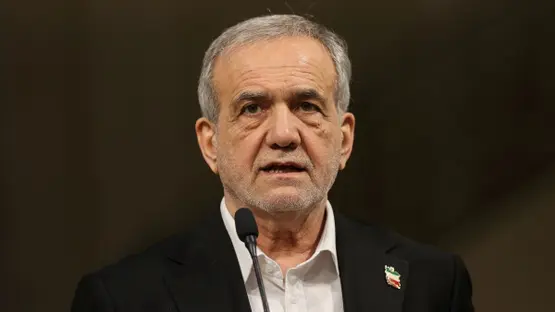Iran has formally suspended its cooperation with the United Nations’ nuclear watchdog, the International Atomic Energy Agency (IAEA), following a new law enacted in response to recent Israeli and US airstrikes on its nuclear facilities. The move marks a sharp escalation in tensions between Tehran and the international community, coming just days after a ceasefire ended a 12-day conflict that saw unprecedented attacks on Iranian nuclear sites.
How the Suspension Happened
On June 25, a day after the ceasefire began, Iranian lawmakers overwhelmingly voted in favor of a bill to suspend all cooperation with the IAEA. The Guardian Council, which reviews legislation, approved the bill, and President Masoud Pezeshkian signed it into law on July 2.
Iranian state TV reported, “President Masoud Pezeshkian promulgated the law suspending cooperation with the International Atomic Energy Agency.”
The new law requires that any future inspections of Iran’s nuclear facilities by the IAEA must first receive approval from Iran’s Supreme National Security Council. This effectively blocks IAEA inspectors from accessing Iranian nuclear sites unless explicitly permitted by the country’s top security body.

Why Did Iran Suspend Cooperation?
The decision comes in the wake of a 12-day war that began on June 13, when Israel launched a bombing campaign on Iranian nuclear and military facilities, killing top scientists and commanders. On June 22, the United States joined the conflict, striking three major nuclear sites—Fordo, Natanz, and Isfahan—with heavy bombs and missiles. Iran claims these attacks targeted peaceful nuclear facilities and has condemned the IAEA for what it calls “silence” in the face of aggression against its sovereignty.
Iranian officials have also criticized the IAEA for a resolution adopted on June 12, which accused Tehran of failing to comply with its nuclear obligations. They argue that this resolution was used as a pretext for the Israeli and US attacks.
“The law aims to ensure full support for the inherent rights of the Islamic Republic of Iran under the nuclear non-proliferation treaty, and especially uranium enrichment,” Iranian state media reported.
International Reactions and Fallout
The IAEA, based in Vienna, has not yet responded officially to Iran’s suspension of cooperation. The agency has been monitoring Iran’s nuclear activities for years, ensuring compliance with international agreements. The 2015 nuclear deal, signed under President Obama, allowed Iran to enrich uranium only up to 3.67% and required strict IAEA oversight. That deal has been in jeopardy since the US withdrawal in 2018 and has now been further undermined by the new law.
Iran has rejected IAEA chief Rafael Grossi’s request to visit the bombed nuclear sites and is reportedly considering an entry ban on him. Iranian officials have accused Grossi of “malign intent” and claim that documents prove he was working for Israel, though they deny making threats against him or other IAEA inspectors.
France, Germany, and Britain have condemned threats against the IAEA chief, and global concerns are rising over the future of Iran’s nuclear program and international monitoring.
The Impact of the War
The recent war resulted in heavy casualties, with over 900 people killed in Iran and 28 in Israel, according to authorities. The US and Israel claim their strikes “obliterated” Iran’s nuclear program, but Iranian Foreign Minister Abbas Araghchi admitted only “serious and substantial damage” to key sites. He emphasized, “One cannot obliterate the technology and science… through bombings.”
Talks between Iran and the US over the nuclear program have now been suspended, and the future of international diplomacy remains uncertain.
What Happens Next?
Iran’s suspension of cooperation with the IAEA is a significant setback for global efforts to monitor and control nuclear proliferation. With inspections now subject to approval by Iran’s Supreme National Security Council, transparency is likely to decrease, raising fears about the direction of Iran’s nuclear activities.
The law does not specify exactly how cooperation will be limited, but it sends a strong message that Iran is willing to push back against what it sees as double standards and aggression from the West. The move also highlights the deep mistrust between Tehran and international bodies, especially after recent military attacks and diplomatic disputes.
Conclusion
Iran’s decision to halt cooperation with the UN nuclear watchdog marks a new and dangerous phase in the ongoing nuclear standoff. As tensions remain high and diplomatic channels stall, the world is watching closely to see how this development will affect regional stability, nuclear negotiations, and the future of non-proliferation efforts.
Stay woke. Stay tuned. Stay with AKEWE NEWS.